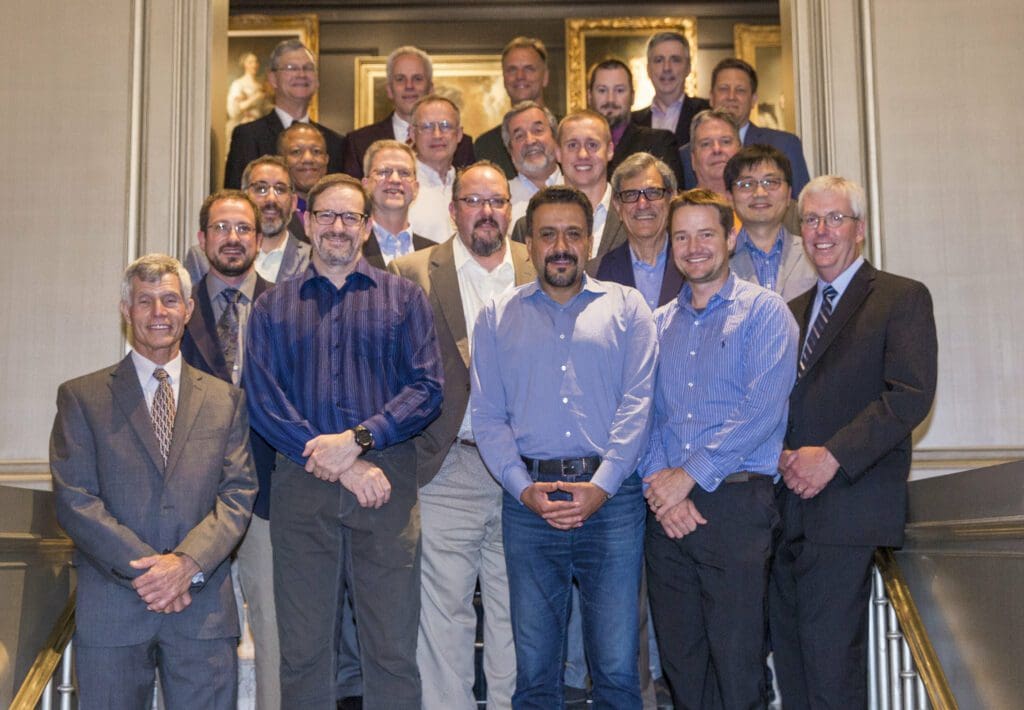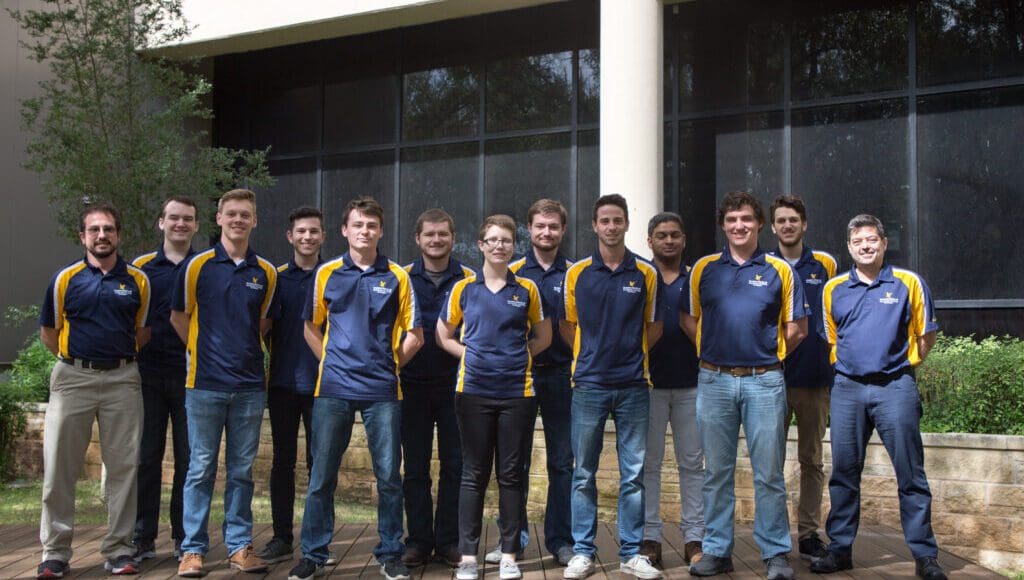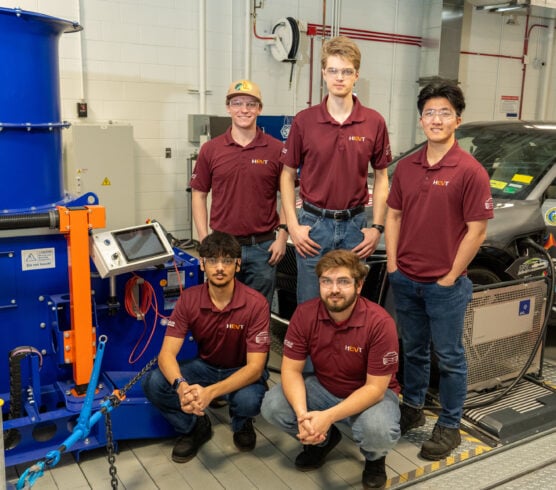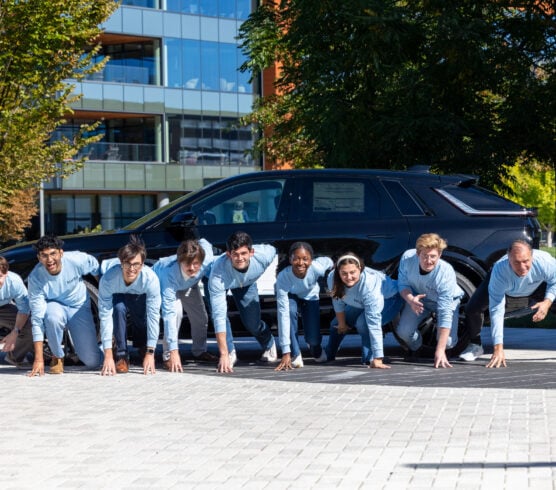The National Science Foundation (NSF) has been a sponsor of the NSF Outstanding Faculty Advisor award for more than 20 years because the goals and objectives of the EcoCAR competition are well-aligned with the NSF mission: to transform the frontiers of science and engineering through research and education.
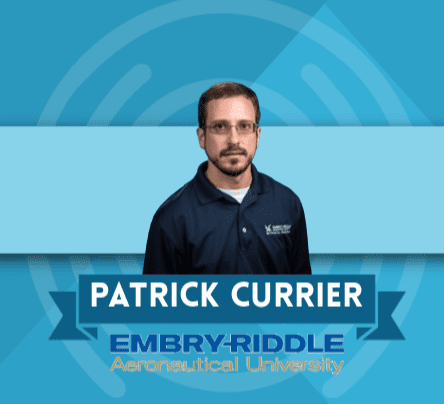 This year’s recipient of the NSF Outstanding Faculty Advisor Award is Dr. Patrick Currier, from Embry-Riddle. Dr. Currier has brought transformational change and meaningful impact to his EcoCAR team – change that is measured far beyond the awards they’ve collected.
This year’s recipient of the NSF Outstanding Faculty Advisor Award is Dr. Patrick Currier, from Embry-Riddle. Dr. Currier has brought transformational change and meaningful impact to his EcoCAR team – change that is measured far beyond the awards they’ve collected.
It starts first with character – he instills a positive, learning environment on his team mixed with a healthy dose of competition and a consistent pursuit for excellence. Dr. Currier creates an environment where students are encouraged to pursue their ideas and where missteps can present the most valuable learning opportunities. Although he encourages competition, he insists on treating everyone with respect, and he values his students’ mental health as much as their academic achievements and certainly more than the awards and the team’s final rankings.
Most notably, Dr. Currier stands out as an exceptional educator and mentor. He goes above and beyond to support his team, meeting regularly with student to ensure they have the resources they need, and to help guide them toward success both in EcoCAR and in their academic and professional pursuits. He also dedicates significant personal time to work closely with the students in the garage, guiding them along as they solve the complex engineering challenges within the competition’s tight timelines.
One of Dr. Currier’s students noted “Our advisor is truly what an advisor should be, through and through, as he allows the students to try, fail, learn, and thrive from each of those moments, teaching students what life outside the university truly is.”
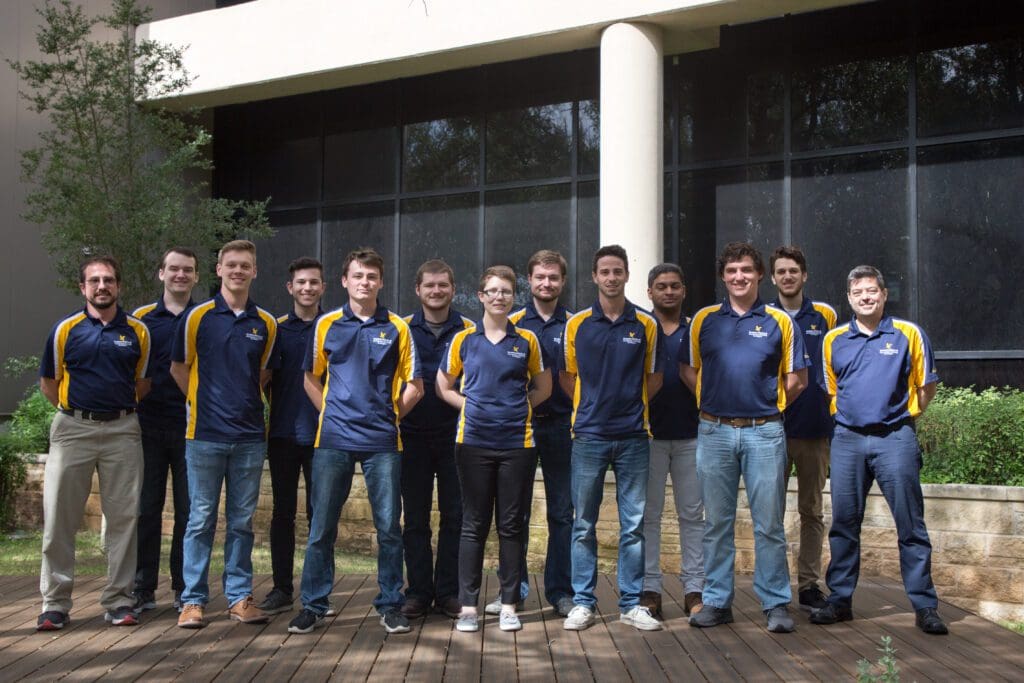
But this advisor’s impact also reaches beyond his EcoCAR team. He has expanded the integration of EcoCAR into the undergraduate engineering curriculum by adding a new design laboratory, that exposes all ME seniors to EcoCAR concepts. In support of this new course, Dr. Currier has coordinated with seven senior design faculty members to develop lectures on EcoCAR-related topics. He has also been a major force for multidisciplinary collaboration, working with the College of Arts and Sciences, the College of Business and other areas within the university to incorporate EcoCAR into their curricula and to expand the team’s resources and capabilities.
Dr. Currier has also been successful in bringing EcoCAR to the attention of the University administration and in securing university support for graduate students and staff. His efforts have resulted in significant facility upgrades and expansions, including the addition of an Advanced Vehicle Design laboratory, and the acquisition of more than $1M in hybrid vehicle test equipment.
And in Dr. Currier’s spare time, he also serves as Associate Chair of Mechanical Engineering and has served on the EcoCAR Faculty Advisory Board for more than four years. As one of the lead advisors with CAVs experience, he has volunteered this time to work with the organizers to develop and scope the CAVs track to ensure that the objectives were achievable by students and that the work could be done safely.

Dr. Currier is universally respected and admired by his students and colleagues and the administration as evidenced by his recent promotion to full Professor while serving as EcoCAR advisor.
Patrick is an ideal example of what it means to be a faculty advisor, professor, educator and technical advisor – leading by example, being consistently available to students, and helping them achieve their best potential. Dr. Currier has been awarded $10,000 to go towards the team’s EcoCAR program.
To all the EcoCAR faculty advisors who dedicated so much time and provided such critical leadership and support for their students during this very difficult year, we salute you. Year after year, we have witnessed the unwavering dedication and commitment of our faculty and the countless hours they spend mentoring and guiding their students. We thank you for all the personal sacrifices. We would not have been able to do this without you.
